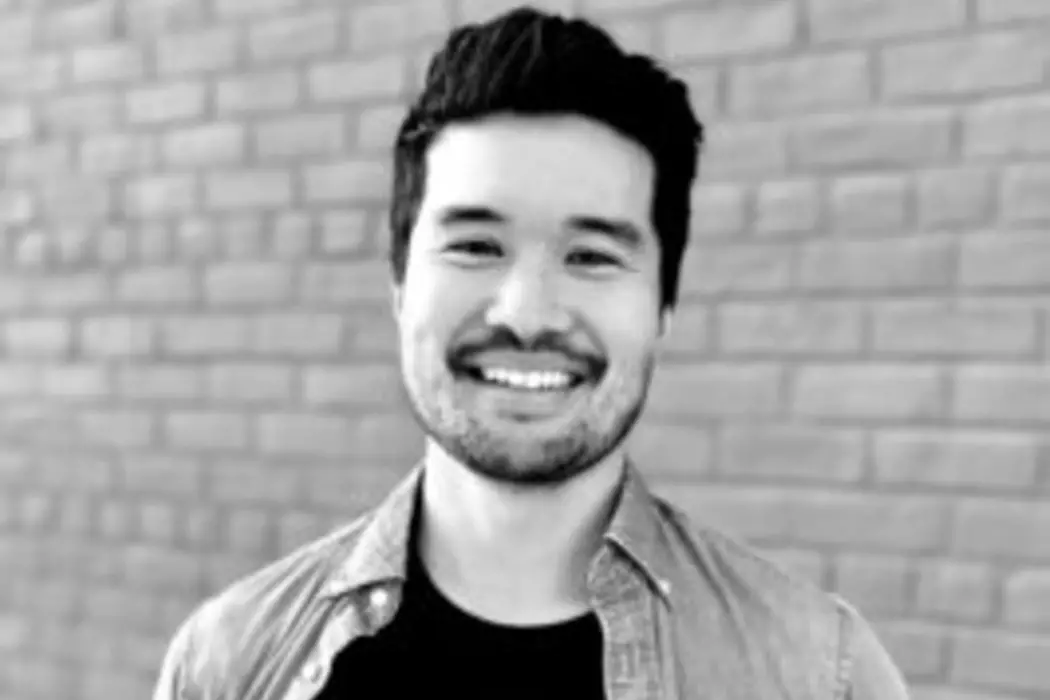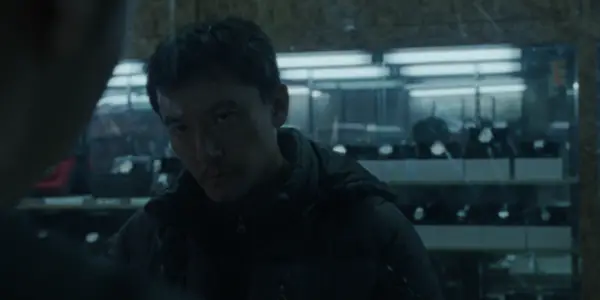TIFF 2025: Interview with Director/Writer Lloyd Lee Choi of Lucky Lu

Wilson is a cinema enthusiast based out of Toronto, Canada.…
After premiering the film at this year’s Cannes Film Festival, Canadian/Korean filmmaker Lloyd Lee Choi brings his feature film debut to Toronto, in what seems like a perfect home for a story about the immigrant experience. Lucky Lu is an exceptional piece of filmmaking, and Choi spoke to Film Inquiry about his creative process during the 2025 edition of the Toronto International Film Festival.

Wilson Kwong for Film Inquiry: I think your background is very interesting. You’re Canadian/Korean, but living in the United States, and just made a movie that features actors from different parts of Asia as well. Can you speak about your influences as a filmmaker, especially when you were growing up?
Lloyd Lee Choi: Growing up, I was into all the buzzy movies that kids watched, like the big blockbusters. But I was exposed to early works from Asian filmmakers, more during university, when I really dug into film. I remember picking up a DVD from the library once when I took a film history class and it was City of God. That just opened my world to foreign cinema, and I dug into everybody, all the legends from around the world; Edward Yang is a big inspiration, Ang Lee, Lee Chang-dong. But for Lucky Lu specifically, I would say the Dardenne brothers in France were a big influence.
I know that this is an expansion of your short film, but of all the immigrant stories that you could have told, why tell this specific one?
Lloyd Lee Choi: I just really felt curious and drawn to this specific line of work. I live in New York City and I see them every single day. They’re around us all the time, and it’s been a minute since this specific community has been highlighted in film. It’s interesting [because] I think gig workers are now starting to come to the forefront of a lot of new films, which is amazing. It clearly is a representation of our times, and so I’m excited to add this film, and the specific community, and specifically New York, putting that into the cannon of this type of storytelling.
And in terms of doing research for the film, did you speak with a lot of delivery people who were actually working in New York?
Lloyd Lee Choi: Yeah, it was a mix of speaking to them and there’s Facebook groups out there for delivery drivers, so I joined those too. YouTube has a ton of videos of the day in the life of delivery drivers, and you just see almost the mundanity of it too, and the routine and the process of how they do things and just observing. I mean, you see them in every single corner, every single day in New York City, and can watch what they do and how they sit at park benches together and eat lunch. There really is a very specific way they move and exist in New York specifically.

I know you’ve said in interviews before that the idea for the film started during the pandemic. Just because so much has changed both during and after the pandemic, has the conception of the film evolved as well? Or is this the exact idea for the film that you had right from the beginning?
Lloyd Lee Choi: It kind of stayed the same as the exact story and idea that I wanted to execute. It’s the world of delivery, and driving it is an immigrant story, but it’s still a very intimate personal story. It’s Lu’s story, it’s Queenie’s story and it’s Si’s story. And that to me, was the heart of the movie, it’s the characters, and this is just their circumstance. I think that’s the way in for me, it’s more that personal connection and really following these people that you love and want to root for.
In terms of the cast, what was it like working with performers from different statues and stages of their career? You have such experience from the likes of Chang Chen and Fala Chen, and then you have a newcomer Carabelle Wei, all of whom are amazing.
Lloyd Lee Choi: I feel very lucky to get Chang Chen and Fala Chen, and also finding Carabelle Wei. I mean, getting any big actor for your first feature seems so daunting, and [Chang] just really loved the script, loved the story, and he felt ready. He told me he felt ready to tell the story as a father. He said if I sent this to him eight years ago, he said he would’ve said no. But now as a father of a young daughter, I think he felt really drawn and interested in exploring this character. And then Fala came on very last minute, like a week before shooting. It’s a very important role, and even though it’s just so much of Lu and Queenie, Fala’s character is heart of the movie in a lot of ways. And she has this grace, and she’s the balancing factor in this relationship and in the film. So it was really important to bring someone in Fala to add that nuance, and it’s not a simple role. And working with Chang, he is a master, and he was so generous and it was incredible. And especially with Carrabelle, who has never acted before – she’s never been in a film, never stepped on a film set – and so to see him [Chang] help her and guide her on set and in scenes, and it was quite beautiful to watch from afar.
Given that Carabelle was a newcomer, were there a lot of rehearsals done beforehand?
Lloyd Lee Choi: We spent a couple days just getting to know each other. We were just bringing her into the production office before shooting, and we’d just go for lunch and walk around the city. I think for her, it took a little bit of time to warm up to a bunch of strangers, a bunch of adults. And I don’t think she knew how big an actor Chang is, which is great, because she had no preconceptions of who he [was], but her mom was very excited to meet him! We were just getting to know each other, and some very light rehearsing reading the scenes, but nothing too heavy.
Can you talk about the tone of the film? I find whenever there’s a movie that’s relatively serious, but a child character is involved, it can become overly comedic or light, but it didn’t feel that way for Lucky Lu. I was just wondering how you decided on the specific tone of the film.
Lloyd Lee Choi: I actually see the film as almost two halves, and there’s a very distinct moment – and I don’t want to give it away – but there is a shift in tone and pacing in my mind. I hope the audience feels that is there’s a relentlessness and the tension is built in the first half. And then I did want to release it a bit, but still have it just sitting underneath everything, and there’s a different type of tension in the second half. So tonally, overall, it’s a careful balance. Obviously, I think she [Carabelle] does bring a bit of levity, and even Fala brings a bit of levity and that dynamic is very different from the first half of the film. But it’s important that reaching for the lightness that you need in darker films, it doesn’t go too far. And sometimes I feel you’re right, it does go too far and takes you out of it. So I wanted to keep it as natural and grounded in this world as possible.
And given you premiered the film at Cannes first, and now in Toronto, has the reception for the film been difference across these two cities?
Lloyd Lee Choi: Good question, I think so. It’s interesting, in Cannes, they’re a bunch of cinephiles and they love movies, and I think there’s really a deep appreciation of this type of film. We actually had to show an unfinished film at Cannes because we had to rush to finish it. So TIFF is the first screening of the final version of the film, and to me, it was important to watch and experience. It’s been really pretty incredible to see the positive reception, and also a relief. I think Canada and the US specifically are so diverse, and I don’t know all the layers behind that and how we connect with characters that doesn’t look like us, but I think there is something there. [Specifically,] that we’re surrounded by all these different sculptures and immigrants, and I wonder if that has something to play on how people receive it here in North America.
Follow our coverage of TIFF 2025 here!
Does content like this matter to you?
Become a Member and support film journalism. Unlock access to all of Film Inquiry`s great articles. Join a community of like-minded readers who are passionate about cinema - get access to our private members Network, give back to independent filmmakers, and more.
Wilson is a cinema enthusiast based out of Toronto, Canada. He escapes from his day job by writing random thoughts about cinema on the internet. Although he has a longstanding penchant for Hong Kong cinema, he considers himself to be an advocate for Asian cinema in general. He has been attending the Toronto International Film Festival every year since 2005, and more of his work can be found on his website: www.wilson-kwong.com.













